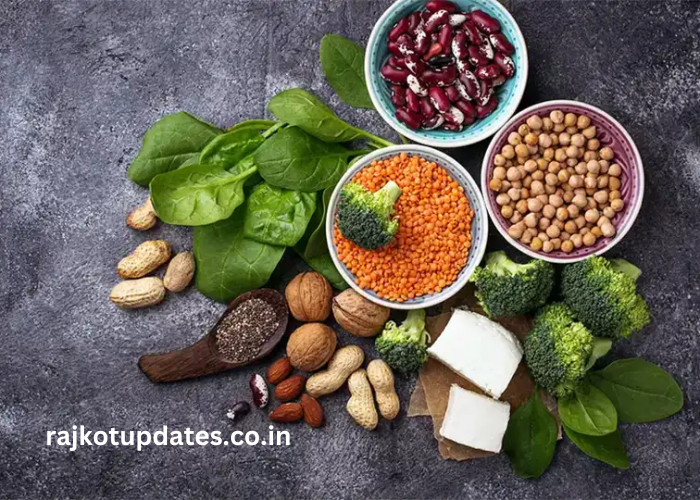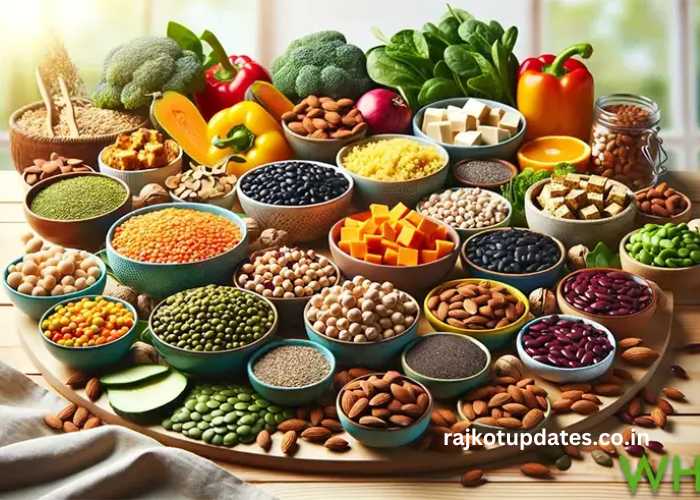Protein is a fundamental macronutrient necessary for the body’s growth, repair, and overall health. It plays a crucial role in building muscle, supporting the immune system, and maintaining various bodily functions. Wellhealthorganic.com provides comprehensive insights into the importance of protein, its sources, benefits, and how to incorporate it effectively into your diet. This guide explores everything you need to know about protein to optimize your health and wellness.
Understanding Protein
Protein is composed of amino acids, which are the building blocks of the body. There are 20 different amino acids, nine of which are essential and must be obtained through diet as the body cannot produce them. Proteins are vital for various physiological processes, including the development of tissues, enzymes, hormones, and antibodies. Understanding the role of protein in the body helps in making informed dietary choices.
Types of Protein
Proteins are classified into two main types: complete and incomplete proteins. Complete proteins contain all nine essential amino acids and are primarily found in animal products such as meat, fish, dairy, and eggs. Incomplete proteins, found in plant-based sources like beans, lentils, and nuts, lack one or more essential amino acids. Combining different plant proteins can provide a complete amino acid profile, making them a viable option for vegetarians and vegans.
Benefits of Protein
Protein offers numerous health benefits, including:
- Muscle Growth and Repair: Protein is essential for muscle synthesis and recovery, making it crucial for athletes and those engaged in regular physical activity.
- Weight Management: High-protein diets can promote satiety, reduce appetite, and support weight loss efforts by increasing metabolism.
- Bone Health: Adequate protein intake supports bone density and reduces the risk of fractures and osteoporosis.
- Immune Function: Proteins are vital for producing antibodies and supporting the immune system.
- Energy Production: During periods of fasting or intense exercise, protein can be used as an energy source.
Protein Requirements
The recommended dietary allowance (RDA) for protein varies based on age, gender, and activity level. Generally, the RDA for adults is 0.8 grams of protein per kilogram of body weight. However, athletes, pregnant women, and older adults may require higher amounts to support increased physiological demands. Consulting a healthcare professional can help determine individual protein needs.
Animal-Based Protein Sources
Animal products are rich sources of complete proteins. Key animal-based protein sources include:
- Meat: Beef, pork, and lamb provide high-quality protein and essential nutrients like iron and vitamin B12.
- Poultry: Chicken and turkey are lean protein sources with lower fat content.
- Fish and Seafood: Fish like salmon, tuna, and shrimp offer protein along with omega-3 fatty acids, which support heart health.
- Dairy: Milk, cheese, and yogurt are excellent sources of protein and calcium.
Plant-Based Protein Sources
Plant-based proteins are ideal for vegetarians, vegans, and those seeking to reduce animal product consumption. Key plant-based protein sources include:
- Legumes: Beans, lentils, and chickpeas are rich in protein and fiber.
- Nuts and Seeds: Almonds, chia seeds, and hemp seeds provide protein along with healthy fats.
- Grains: Quinoa, brown rice, and oats offer protein and complex carbohydrates.
- Vegetables: Broccoli, spinach, and peas contain moderate amounts of protein and essential nutrients.
Protein Supplements
Protein supplements can help meet dietary needs, especially for athletes and individuals with increased protein requirements. Common protein supplements include:
- Whey Protein: A complete protein derived from milk, known for its fast absorption and effectiveness in muscle building.
- Casein Protein: Another milk-derived protein that digests slowly, providing a sustained release of amino acids.
- Plant-Based Protein: Options like pea, hemp, and rice protein are suitable for vegans and those with dairy allergies.
Timing Protein Intake
The timing of protein intake can influence its effectiveness. Consuming protein-rich foods or supplements after exercise can enhance muscle recovery and growth. Distributing protein intake evenly throughout the day, including with each meal, supports muscle protein synthesis and overall health.
Protein and Weight Loss
High-protein diets are often recommended for weight loss due to their ability to promote fullness and reduce calorie intake. Protein increases thermogenesis, the process by which the body burns calories to digest food. Including protein in every meal and snack can help control hunger and support weight management goals.
Protein and Muscle Building
For those looking to build muscle, protein intake is crucial. Combining protein with resistance training stimulates muscle protein synthesis, leading to muscle growth. Consuming a protein-rich meal or supplement within 30 minutes to two hours post-exercise maximizes muscle repair and development.
Potential Risks of Excess Protein
While protein is essential, excessive intake can have adverse effects. Overconsumption of protein, particularly from animal sources, can strain the kidneys, increase the risk of heart disease, and contribute to nutrient imbalances. Moderation and a balanced diet are key to avoiding these risks.
Protein for Special Populations
Certain populations have unique protein needs:
- Pregnant and Nursing Women: Increased protein is needed to support fetal and infant growth.
- Elderly: Higher protein intake helps prevent muscle loss and maintain strength.
- Athletes: Enhanced protein consumption supports recovery, performance, and muscle maintenance.
Incorporating Protein into Your Diet
Incorporating protein into your diet can be simple and delicious. Start the day with a protein-rich breakfast, such as eggs or a smoothie with protein powder. Include lean meats, fish, or plant-based proteins in lunch and dinner. Snack on nuts, seeds, or Greek yogurt for an added protein boost.
Cooking Tips for Protein-Rich Foods
Cooking methods can influence the nutritional value of protein-rich foods. Opt for grilling, baking, steaming, or poaching over frying to reduce added fats and calories. Marinating meats can enhance flavor without extra calories. Experiment with herbs and spices to add variety to your protein dishes.
Conclusion
Protein is an indispensable part of a healthy diet, offering numerous benefits for growth, repair, and overall well-being. Wellhealthorganic.com emphasizes the importance of understanding your protein needs, choosing high-quality sources, and incorporating protein effectively into your daily meals. By balancing animal and plant-based proteins and considering individual requirements, you can optimize your health and enjoy the full benefits of this vital nutrient.



